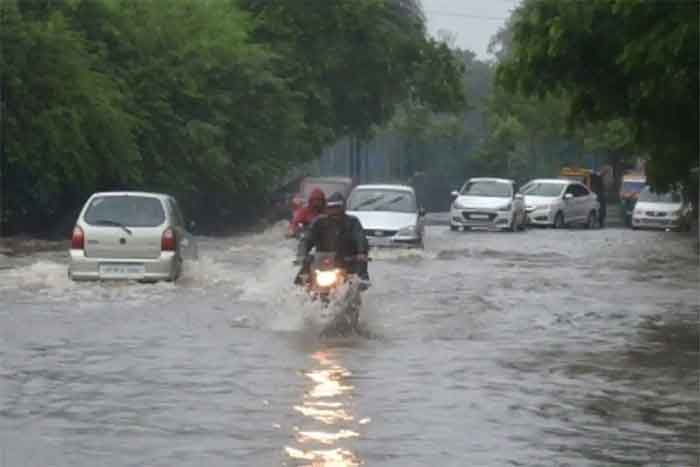On May 4th of 2021, as the second wave of COVID-19 raged in the hills of Darjeeling, a group of youth came up with an initiative called “We Shall Overcome” to lead their community in the battle against the pandemic.
COVID-19 had scorched the Darjeeling hills creating panic among the people, especially rural areas of the hilly district where medical facilities are not up to the mark. Till August 31, Darjeeling district had recorded 5,056 cases and 75 deaths, the highest in north Bengal.
A bulk of these cases have been in urban areas, with the villages less affected due to their dispersed and remote location in the hills and tea gardens. Villages in the district also imposed strict restrictions on the residents and maintained social distancing, which helped to Covid-19 numbers low.
However, in the urban areas of Darjeeling there was much better medical care and material support for those affected by COVID. With a lot of NGOs and a number of business establishments, people were able to receive aid and supplies, required to deal with COVID-19. For example, St.Joseph’s College turned its establishment into a quarantine facility for the benefit of city residents.
In the rural areas these kinds of efforts were rare. Serving the rural population was the basic impetus behind the “We Shall Overcome” initiative. According to Sumendra Tamang, one of the founders of this initiative, their objective was to provide the rural population with essential supplies as well as training to look after themselves in the face of the crisis.
 The group, according to one of its members, focused on providing supplies to the communities instead of to individual families. According to Sumendra, providing (supplies) to each affected families is always a difficult task as it takes a huge amount of resources to keep up the effort. But if the things are provided to a collective it is not only sustainable, but it builds a sense of solidarity among the individuals of the community,
The group, according to one of its members, focused on providing supplies to the communities instead of to individual families. According to Sumendra, providing (supplies) to each affected families is always a difficult task as it takes a huge amount of resources to keep up the effort. But if the things are provided to a collective it is not only sustainable, but it builds a sense of solidarity among the individuals of the community,
“This way, we can sow seeds for a model of community based health-service’ says Sumendra.
The members of the initiative told Covid Response Watch that at the start the initiative was particularly hectic, as they started receiving a number of calls asking for assistance. According to them during this period they would receive calls as late as 2 am in the night.
Slowly they started to build a volunteer network and starred work in rural areas and tea garden settlements across Darjeeling, Kalimpong and the Dooars region.
The local authorities were not very cooperative initially. For example, in the Kurseong area, the volunteers faced hindrance from authorities when the officer-in-charge of the Kurseong police station denied them permission for movement during the lockdown.
According to the activists, the Sub divisional officer of the Kurseong sub-division actively discouraged the volunteers to get involved in social support activity. However, finally they got the required the permission from the Darjeeling Police and continued their work.
“Currently we have an active local volunteer network in almost 114 places in the rural areas of the hills and Dooars.” The group has a strength of about 20 to 25 centrally active volunteers and more than 200 community-level volunteers to carry out the day-to-day work of the initiative” said Sumendra.
According to these young activists, the reason behind starting the initiative was not just to provide the people with relief material. Rather, their motive was to establish a narrative of community-based service, against the narrative of “charity”, which has been prevalent everywhere during the pandemic. . During the pandemic these efforts provided respite to a number of people who didn’t come under the wings of city-based NGOs or corporate charities.
The overall health infrastructure of the rural areas of Darjeeling and Kalimpong is not so good. Even if local hospitals are there, people cannot reach swiftly to the same due to difficulty in transportation. So, the activists feel that the concept of a collective support system based on support from the local population could be very helpful, even in post-pandemic times.
The network has already trained people in many areas on how to use an oximeter or oxygen concentrators. The logic behind these trainings, as described by the activists, is to make the local people capable of using these equipments in case of any emergency, as outside help always takes some time to come by.
In recent weeks, like everywhere else, the number of COVID-19 cases in the hills too is going down. Life is returning to normal once again. But the chances of resurgence remain.
The young activists of “We shall Overcome”, are continuing their work and with their army of grass-root volunteers are ready to fight the battle against Covid again if the situation worsens. They hope their efforts, based on a model of public participation, will encourage many others to start similar initiatives everywhere.
Arka Deep is a researcher based in Bolpur, West Bengal














































